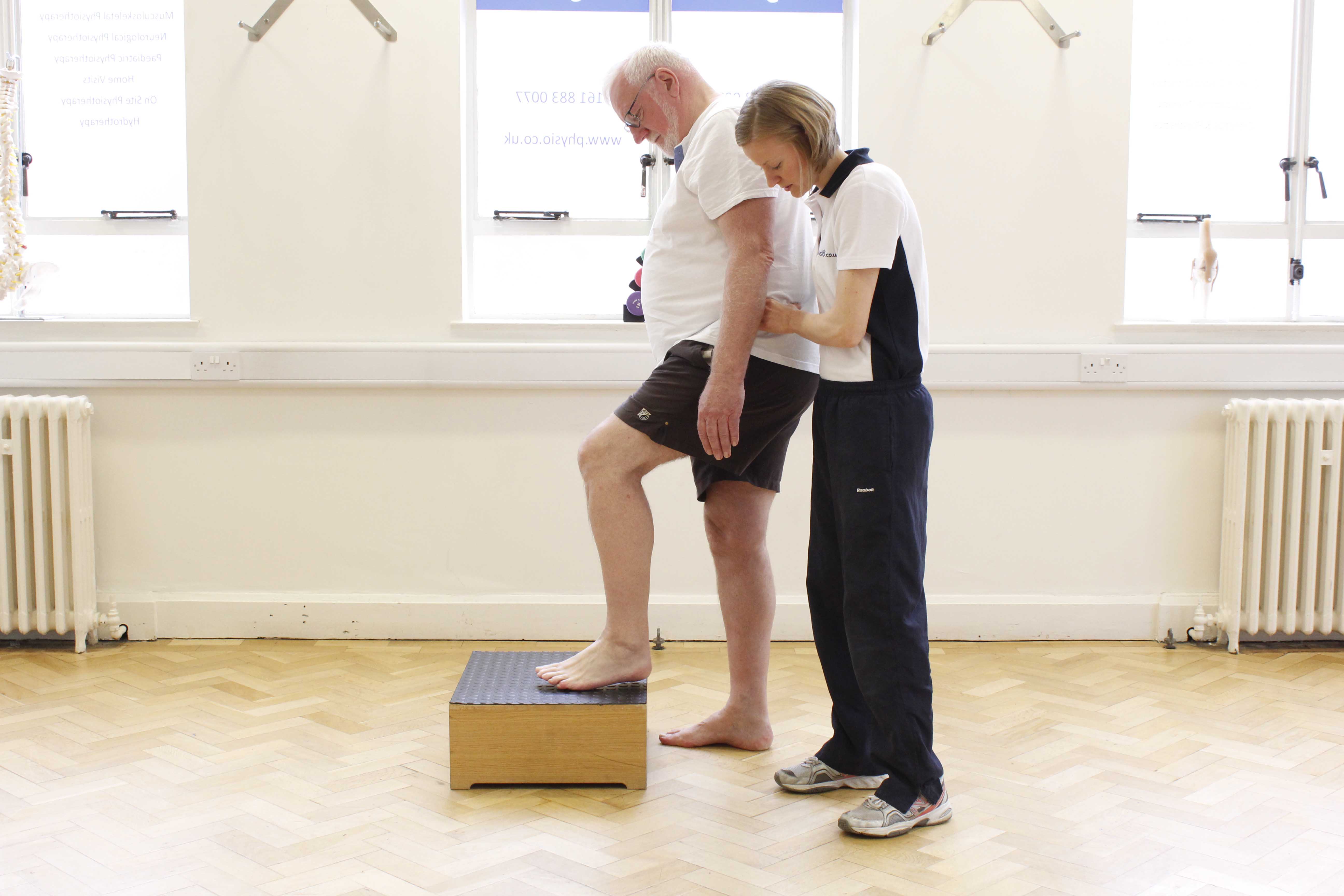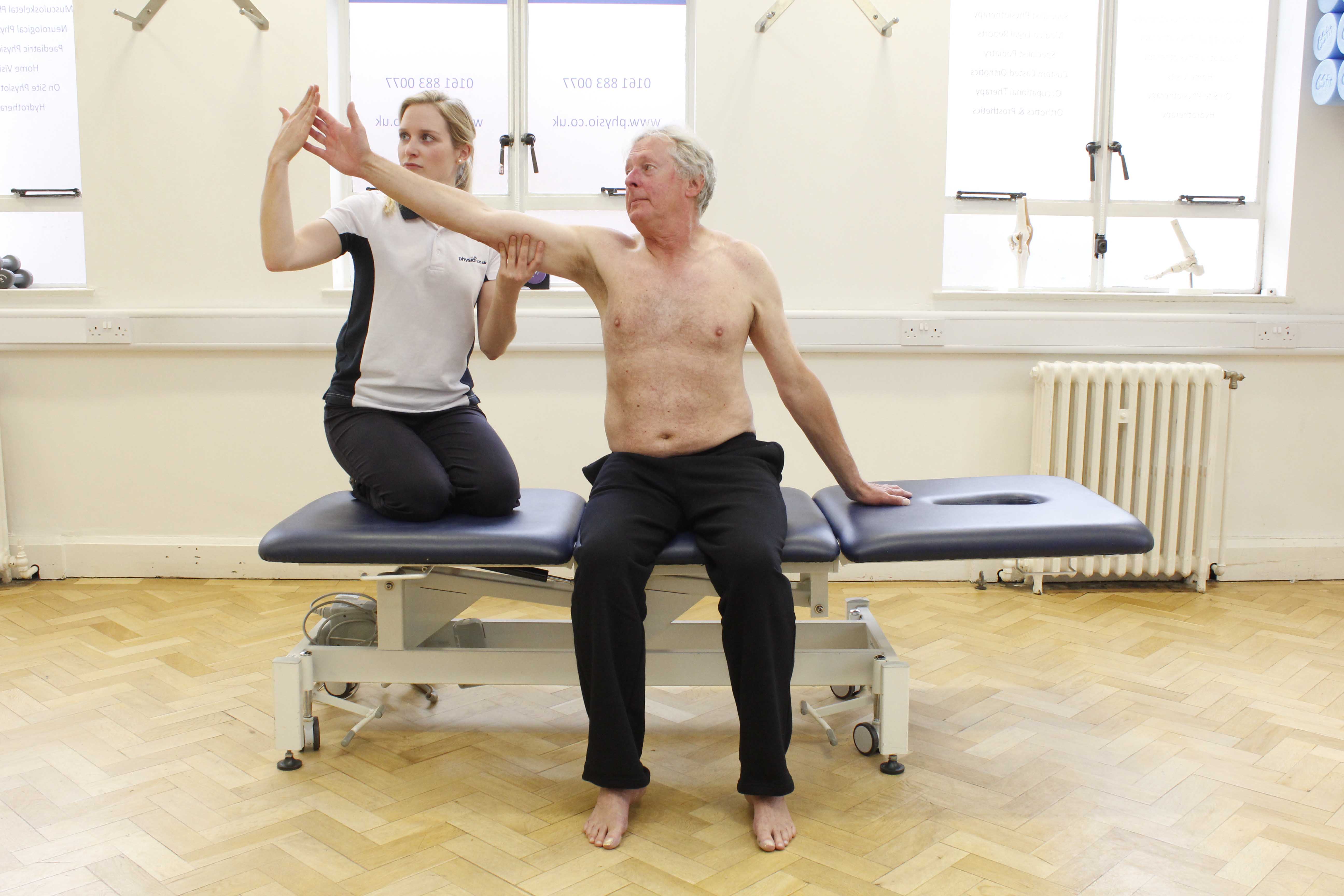What is ataxia?
Ataxia is a neurological disorder caused by damage to parts of the nervous system which control movement and balance. This causes uncoordinated movement of the muscles in the body. Ataxia is the main symptom of a group of neurological disorders called the cerebellar ataxias. Ataxia is also a symptom of many neurological disorders includingstroke, head injury, multiple sclerosis and cerebral palsy.
 Above: Functional mobility exercises assisted by a specialist neuro physiotherapist
Above: Functional mobility exercises assisted by a specialist neuro physiotherapistDiagnosis of ataxia
Diagnosis of ataxia is complex as there are different types of ataxia, and other neurological conditions have similar symptoms. A neurologist may have to carry out many tests in order to confirm diagnosis which includes:
- Blood tests
- Magnetic Resonance Imaging (MRI) scans
- Genetic tests to see if the disorder is inherited
 Above: Reaching balance exercises supervised by an experienced neuro physiotherapist
Above: Reaching balance exercises supervised by an experienced neuro physiotherapistWhat causes ataxia?
There are different causes of ataxia thatcan be inherited or non-inherited.
Causes of inherited ataxia include:-
- Gene abnormality passed down through family (this depends on the type of ataxia being passed on). For example cerebellar ataxia such as:
- Friedreich's ataxia,
- Spinocerebellar ataxia type 6
- Ataxia telangiectasia
- Abnormal development of the cerebellum in the womb. The cerebellum is the area of the brain which is responsible for coordination of muscle movement. The symptoms start when the person is young.
- Stroke
- Traumatic Brain Injury
- Multiple Sclerosis
- Cerebral Palsy
- Sensitivity to gluten and a vitamin E deficiency.
- Alcohol and drug abuse
What are the effects / symptoms of ataxia?
Ataxia affects people in different ways as there are different types of ataxia with varying degrees and symptoms.
The symptoms of ataxia can get better or worse depending on the cause of the condition and if the treatment is accessed. Symptoms of ataxia include:
- Difficulty in standing and walking due to poor balance
- Poor coordination of the arms and legs
- Difficulty with writing and eating due to impaired coordination and involuntary shaking
- Difficulty with speech and swallowing
- Slow eye movements and dizziness
- Overarched feet
Physiotherapy for ataxia
Physiotherapy is important for people with ataxia and the specialist neurological physiotherapists at Physio.co.uk are experienced in treating people with this condition. Physiotherapy treatment for ataxia is focused around:
- Increasing control of movement of the arms, legs and trunk
- Improving balance
- Improving posture
- Improving walking
- Promoting independence
Physio.co.uk provides patient centred care that will enable you to increase your independence and postural stability in a safe environment.
To book an appointment call 0330 088 7800, book online or alternatively request a free phone consultation.

 0330 088 7800
0330 088 7800


































